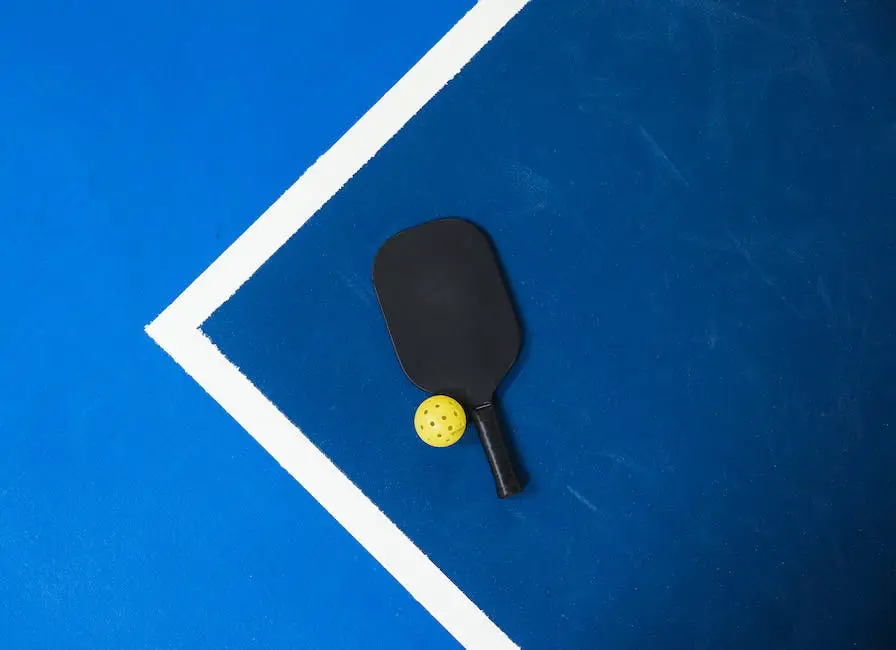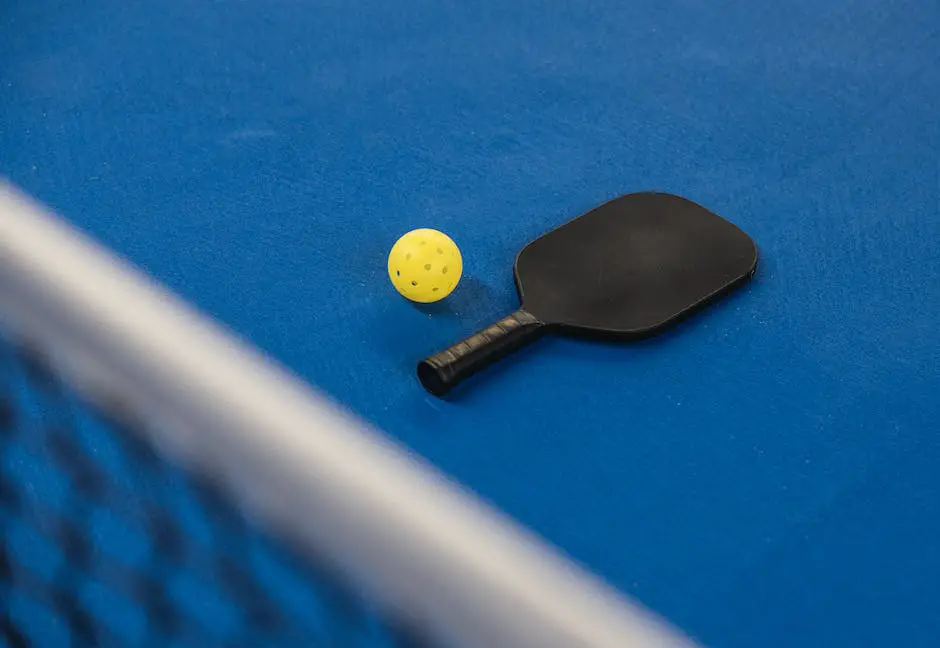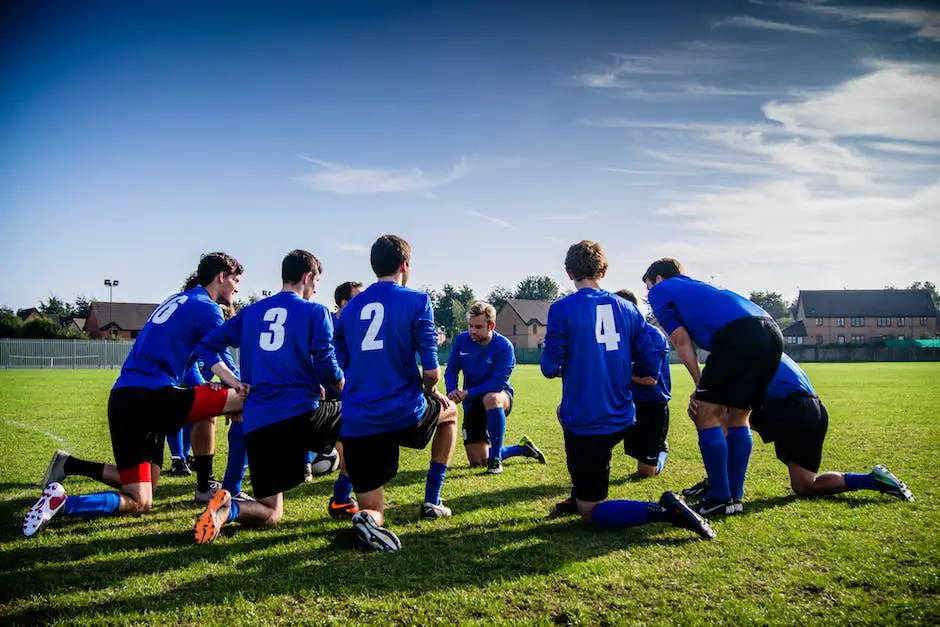In the realm of sports, Pickleball is quickly gaining significant popularity. Originating as a backyard pastime, it has evolved into a highly competitive sport with national and international tournaments. This documentation aims to provide a comprehensive look into Pickleball, from its basic understanding to the adrenaline-fueled fun of tournaments. Whether you’re a newcomer eager to learn the game or an experienced player looking to enhance your skills and tournament experiences, this comprehensive discourse will have something for you.
Understanding Pickleball
Pickleball: An Intriguing Blend of Three Sports
Pickleball is a relatively new racket sport that emerged in the mid-1960s, characterized by a compelling blend of tennis, badminton, and table tennis. The game was invented by three fathers from Bainbridge Island, Washington, who aimed to create a game that could be enjoyed by children of all ages. However, it has since reached far beyond its humble beginnings, ensnaring adults and elders alike due to its leisurely pace and simple rules, making it a popular choice for community centers and retirement communities.
Court Dimensions and Basic Equipment
A pickleball court is similar to a badminton court in size, measuring 20 by 44 feet and subdivided into several zones. Each player must be equipped with a pickleball paddle, which is larger than a ping pong paddle but smaller than a tennis racket. They need a plastic ball with holes, akin to a whiffle ball. You will also require the essential line markers to indicate the various areas of the court, including non-volley zones (also known as “kitchen”) and service boxes.
Basics and Rules of Play
Unlike tennis and other racket sports, serving in pickleball occurs underhand and must be executed diagonally, landing in the service box across the net. While a point can be scored by the serving side only, the service alternates between individual players in doubles. During a volley (hitting the ball before it bounces), players must avoid the “kitchen” or the non-volley zone. This rule enhances the strategic element of the game, as positioning and movement become crucial.
Common Terminology in Pickleball
Understanding of certain terminologies is beneficial when participating or spectating pickleball matches. Terms like “dink,” a soft shot aimed at landing in the opponent’s non-volley zone, “rally,” continued exchange of shots, and “fault,” a violation of the rules causing loss of serve or a point, are commonly used during the matches.
Pickleball Tournaments
Over the years, pickleball’s popularity has soared, leading to numerous local, regional, national, and even international tournaments. Examples include the US Open Pickleball Championships in Florida, the USA Pickleball National Championships in California, and the Bainbridge Cup in Spain. These tournaments are often divided into various age and skill categories, granting amateurs and professionals alike a chance to compete. They often follow a bracket style, single-elimination format, though format can vary by tournament.
Opportunities for Spectators
With the rising popularity of pickleball, it’s increasingly becoming a spectator sport, especially during these professional tournaments. Many of these, like the US Open Pickleball Championships, can be streamed online for fans to watch remotely. For on-site spectators, many tournaments offer food, music, booths with pickleball merchandise, and opportunities to interact with the athletes. The atmosphere is usually a blend of festive and competitive.
Introduction to Pickleball
Pickleball, though straightforward to learn but demanding to master, is a game that appeals to a wide range of individuals, regardless of age or experience. With the increase in pickleball courts and programs in local communities, and considering its thriving professional scene, this sport provides an exciting venture to comprehend and even participate in.

Preparing for a Pickleball Tournament
Training for a Pickleball Tournament
Anticipating a pickleball tournament involves working on your overall fitness, enhancing game-specific skills, and managing nutrition effectively. Regular workouts including cardiovascular activities, muscle strengthening sessions, and flexibility exercises are fundamental. Engaging in cardiovascular activities such as jogging, biking, or swimming boosts your stamina, helping to extend energy levels during matches. Strength exercises enhance muscular endurance and potency, which are important for powerful shots and sustained play. Moreover, quick movements and injury prevention could be achieved with regular stretching and flexibility exercises.
Improving specific pickleball skills such as mastering serving, returning serves, dinking, and executing volleys are vital. Frequent practice sessions are key in mastering these techniques. To effectively enhance these essential skills, hiring a personal coach for professional feedback and guidance could be immensely beneficial.
Maintaining good nutrition with a balanced diet rich in proteins and carbohydrates is crucial to fuel up for lengthy matches. Hydration is critical, too, given the substantial loss of electrolytes through sweat; therefore, the regular intake of electrolyte-rich drinks is highly recommended.
Mental Preparation for a Pickleball Tournament
Mental preparation is as crucial as physical readiness. The key aspects of mental preparation include getting into the right mindset, managing stress and anxiety, and planning strategies. Visualization techniques, where players mentally rehearse matches, can be exceptionally beneficial. It aids in honing focus, building confidence, and identifying strategies. Stress and anxiety management techniques like deep breathing, mindfulness, and practicing under match conditions can significantly enhance performance during actual games.
Planning strategies involves understanding your strengths, weaknesses, and your team’s dynamics. Regular practice sessions, self-reflection, and coach feedback are avenues for gaining such insights.
Selecting Equipment for a Pickleball Tournament
Quality and comfort of equipment significantly impact performance during games. Essential equipment includes paddles, balls, and shoes. Select a paddle that fits comfortably in your hand, with a weight that allows for control and power. Seek paddles made with durable materials to endure tournament level play. Approved pickleball balls meeting the International Federation of Pickleball (IFP) standards are required. As for shoes, opt for a pair providing good grip, comfort, and ankle prevention.
Deciphering Pickleball Tournament Rules and Structures
To fully comprehend and participate in a pickleball tournament, it’s crucial to understand the tournament format, scoring system, and pertinent rules. Tournament structures commonly consist of single-elimination, double-elimination, or round-robin formats. A majority of tournaments utilize a best-of-three format with games played up to 11 points. To secure a win, a player or team must surpass their opponent by at least two points.
Grasping the variety of pickleball rules is fundamental. These may include service rules, the two-bounce rule, non-volley zone (more commonly known as the ‘kitchen’) regulations, and a host of other fault rules. Specific rules may vary slightly between tournaments, making it essential to practice under the designated tournament rules. Some tournaments provide an official referee, whereas in others, players themselves may be tasked with regulating the game.

Experiencing Pickleball Tournaments
Experiencing Pickleball Tournaments: A Thrilling Journey
Participating in a pickleball tournament provides a dynamic blend of spirited competition, social exchange, and lively fun. Tournaments offer an exhilarating challenge for newcomers to the sport. Quite often, tournaments are divided into various skill level brackets, allowing beginners to relatively compete against players of the same skill level. Such an approach not only fosters a sense of camaraderie but also serves as a great platform for novices to improve their game.
Learning Curve for Novices
New players to pickleball can feel the adrenaline rush in a tournament as it provides a unique opportunity to put their skills and strategies to the test. It might be intimidating at first, given the fast pace, loud “pops” of the pickleball paddle strike, and the energy of the crowd. However, after a few matches, newbies often find themselves genuinely enjoying the experience. Tournaments are often organized in a double-elimination format, so novices will have more than one chance to display their skills and potentially bounce back from an initial defeat.
Expert Perspective on Pickleball Tournaments
Experienced players, on the other hand, relish the fiercely competitive atmosphere of pickleball tournaments. The familiar rhythm of the game, the thrill of close calls, and the ever-present possibility of an upset victory make every match enjoyable and unpredictable. Furthermore, strategies like shot selection, court position and team communication, which sometimes get overlooked during recreational play, are often brought to the forefront in a tournament setting. This gives experts an opportunity to display their finesse and strategies, enhancing the excitement of the game.
Pickleball Tournament Atmosphere
There’s an indescribable atmosphere at pickleball tournaments. The hustle and bustle of ongoing games, cheers from the audience, friendly banter between competitors, and shared laughs add to the overall charm and vivacity of tournaments. They aren’t just about the tough competition; tournaments also enable connection with fellow pickleball enthusiasts. You’ll make new friendships, whether that be with your partner fortuitously matched through a random draw or your next-court competitors during a mutual water break.
Challenges in Pickleball Tournaments
The challenges faced in pickleball tournaments vary significantly depending on the players’ expertise. Novices generally grapple with controlling their nerves and managing unfamiliar game-day logistics like where to be and when. On the contrary, experienced players may find planning strategies against high-level opponents or maintaining focus during long matches to be more challenging. Regardless of the level of expertise, all tournament participants need to be prepared for long, physically demanding days of continuous games.
The thrill of competition and the camaraderie among players make pickleball tournaments a memorable and invigorating experience. Regardless of whether one emerges victorious or not, the spirit of sportsmanship ensures that these tournaments are an opportunity for improvement and are enjoyable experiences for participants.

Practical Guide to Joining Pickleball Tournaments
Diving Deeper Into Pickleball Tournaments
Pickleball tournaments are an exciting platform for fans to showcase their skill and grit, fostering a sense of competition and sportsmanship. Ranging from local events to national-level tournaments, these gatherings attract players across all skill levels. But, taking part in a tournament involves much more than just turning up with your paddle – it’s a process that includes understanding the registration procedures, associated costs, and the different tournament formats.
Getting Started
Before joining a pickleball tournament, it’s essential for you to understand the game rules, scoring and court dimensions. Familiarize yourself with the rules and strategies by practicing and playing regularly. You would need to provide your own equipment such as paddles, balls and clothing suitable for sport.
Registration Process
Each tournament has a different registration process, which typically includes filling out a form with information such as your name, age, gender, contact information and skill level. This information helps organizers group players into different divisions. Many tournaments offer online registration via their websites or pickleball tournament management platforms, which makes it easy for players to sign up and get all the necessary information.
Tournament Fees
Entry fees for pickleball tournaments vary widely based on the level of the tournament – local, regional, national – and sometimes based on the division you’re playing in (singles, doubles, mixed doubles). Fees can range from $10 to several hundred dollars. The fee usually covers the cost of hosting the tournament, awards, and overhead costs such as facility rentals or equipment. It’s also common for tournaments to be fundraisers, with the fees going towards a charitable cause.
Tournament Formats
Pickleball tournaments usually consist of a round-robin or double-elimination format. In a round-robin format, each player or team plays every other player or team once. The team or player with the most wins at the end of the round-robin is the champion.
In a double-elimination format, teams continue to play until they lose two matches. This format ensures that every team gets the opportunity to play at least two games before they’re out of the tournament.
Helpful Resources
Participating in pickleball tournaments can be made easier with the right resources. The internet, for instance, is loaded with websites and platforms providing information about upcoming competitions. Following are some helpful resources:
- United States of America Pickleball Association (USAPA): The USAPA provides tournament players with resources, including a list of sanctioned tournaments in the US.
- Pickleball Tournaments: This website is a central hub for all things related to pickleball tournaments. It has a comprehensive listing of upcoming tournaments, along with detailed information about each one.
- Social media sites and pickleball community forums: These platforms often have information about local and national tournaments, helpful tips and tricks, and a community of fellow pickleball enthusiasts who can provide advice and support.
By understanding these key aspects, you set yourself up for a successful, informed, and enjoyable participation in pickleball tournaments.

In essence, Pickleball is more than just a game; it’s a community bound by shared passion, sportsmanship, and competition. The thrill of participating in tournaments brings together players of all skill levels in a fantastic celebration of this engaging sport. By understanding its foundations, preparing effectively, immersing in its unique tournament experiences, and actively participating in organized play, one can truly relish the joy Pickleball tournaments bring. Tap into this source of passion, fun, and challenge; Pickleball stands ready to welcome you to its dynamic world!